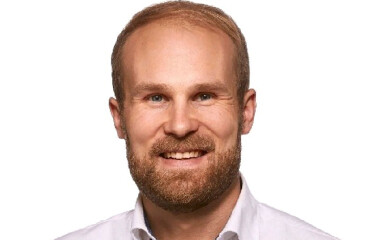SeafoodSource is closely following the sustainable seafood movement by compiling a regular round-up of sector updates about sustainability initiatives and certifications.
- Finland-based biotech startup Enifer has announced it has been approved for a grant of more than EUR 12 million (USD 13 million) from Business Finland to commercialize its first factory that aims to produce PEKILO mycoprotein, a fungi-based, nutrient-rich protein source that can be used in aquafeed.
The factory is slated to wrap up construction by the end of 2025, with production to begin in 2026, the company said in a release.
“A key objective for the original developers of PEKILO was to take this amazing source of protein to food applications. It is an absolute privilege for Enifer to be able to finally complete that mission more than 50 years on,” Enifer CEO Simo Ellilä said.
The factory is projected to cost EUR 30 million (USD 32.6 million) to build and will be located in the Uusimaa region of southern Finland.
"This plant will be a critical stepping stone to scaling the production of PEKILO as a truly universal protein source – which we aim to commercialize globally across different applications," Ellilä said. "Thanks to the unique history of PEKILO, we are able to take this giant leap from our existing pilot directly to a commercial-scale facility. We are extremely grateful for the financial support approved by Business Finland and the European Union NextGenerationEU program, which will enable us to take this huge step in the coming year."
- Loures, Portugal-based Sebol has announced its plans for an industrial unit that will break down animal products to create protein for use in fish feed.
The unit, secured by a EUR 15.4 million investment, will be located in Coruche, Portugal and become a key component of the company's Pep4Fish project.
“Sebol is very optimistic about the significance of this new production unit, representing the first nationally produced hydrolyzed protein with a focus on fish feed at an industrial level. This marks a significant step that will contribute to efficient and sustainable fish production,” ETSA Group Head of Research Andre Almeida said in a release.
Sebol, as a subsidiary of the ETSA Group, received EUR 4.6 million (USD 5 million) of its funding for the unit from the Blue Bioeconomy Pact, which is a Portuguese consortium of over 50 companies looking to find innovative blue biotech innovations, the company said. The industrial unit will measure 9,000 square meters and create 15 new jobs in the agrifood sector in Portugal.
- Norwegian salmon farmer Atlantic Sapphire announced its latest Bluehouse Salmon product, which will include fish raised onshore in the U.S. state of Florida, as part of a larger sustainability push.
“Our focus on sustainability is all-encompassing since we aim to execute planet-friendly production of salmon by controlling our advanced water systems, innovating in feed and packaging, and maximizing use of waste and byproducts,” Atlantic Sapphire Director of Marketing Max Francia told SeafoodSource. “As we continue our production ramp-up in Q1 and Q2 to over 10 truckloads per week of salmon, we are also increasing educational efforts that communicate the sustainability advantages of our brand, Bluehouse Salmon, to consumers. We have seen how shoppers prefer to pick a local option, ... [and] market research shows that a number of consumer segments exist that prioritize values such as lower carbon footprint, no impact on ecosystems, and protection of wild species when making their purchasing decisions.”
This initiative follows an update posted to the Oslo Børs, in which Atlantic Sapphire said it has seen higher levels of early maturation in its fish associated with Q3 2023 temperature issues. During June and July, hot weather in Miami, Florida, U.S.A. – where Atlantic Sapphire’s salmon recirculating aquaculture system (RAS) facility is based – caused water temperature issues that caused the company to undershoot its biomass targets.
The Bluehouse Salmon product was rated as a green choice by Seafood Watch and is recommended by Ocean Wise.
“These distinctions speak to the commitment we have to providing a truly eco-friendly choice for consumers, customers, and the foodservice industry. Additionally, our salmon is completely traceable with a local and fast supply chain in North America and local labor protected by U.S. laws, which are qualities highly valued in the marketplace,” Francia said.
- The Environmental Agency (EA) Fisheries Improvement Program (FIP) has announced a total of GBP 730,000 (USD 927,000, EUR 853,000) is available to help create sustainable fisheries across England. FIPs across England can apply for a share of the funding to open fish passages, create sustainable fish habitats, or improve the angling of facilities.
“The FIP is a great example of how the EA is supporting the sport of angling whilst also enhancing the environment. We have already seen the success of previous FIP projects, including those addressing the risks to fish stocks and better protecting habitats from the increasing impacts of climate change,” EA Fisheries Partnership Manager Heidi Stone said in a release. “I would like to encourage those who can apply so that we can continue to invest in making long-lasting improvements to fisheries across England."
The EA works with a range of partners and completed approximately 20 projects between 2022 and 2023, improving 72 total kilometers of rivers and 237 hectares of still waters.
"Using FIP money, we had a great day in the December snow in Northumberland, attended by Aln Angling Association, Northumberland Rivers Trust, local councils, and EA staff," Wild Trout Trust Director Shaun Leonard said regarding a project carried out at the end of 2023. "The habitat workshop underlined the huge habitat value of large woody material to the river, how to mimic naturally fallen wood with introduced tree limbs, and the problems from unfettered livestock access to the stream."
This FIP scheme round is open until 14 February.
Photo courtesy of Simo Ellilä/LinkedIn







